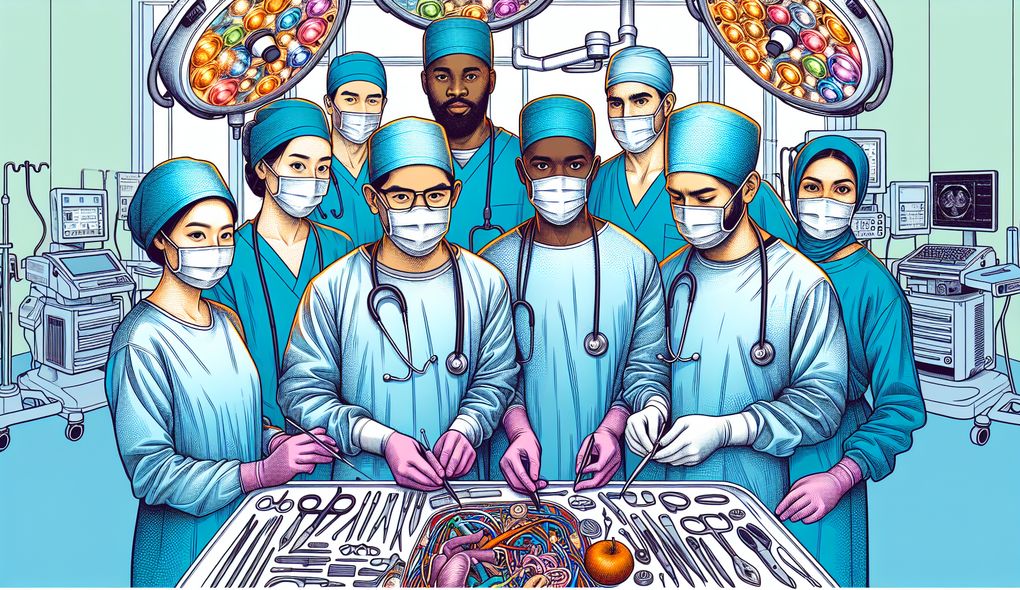Describe a time when you had to navigate a difficult conversation with a patient or their family.
INTERMEDIATE LEVEL

Sample answer to the question:
There was one instance where I had to navigate a difficult conversation with a patient's family. The patient had just undergone surgery to remove a tumor, but there were complications during the procedure. I had to explain to the family the challenges we encountered and the potential impact on the patient's recovery. I empathized with their concerns and reassured them that we were doing everything possible to optimize the patient's outcome. I patiently answered their questions and provided additional information to address their doubts. By the end of the conversation, the family felt more at ease and expressed gratitude for my transparency and compassion.
Here is a more solid answer:
There was a particularly challenging conversation I had with a patient's family during my previous role as a General Surgical Oncologist. The patient had been diagnosed with advanced stage cancer and required an extensive surgical procedure to remove the tumor and surrounding tissues. However, during the surgery, we encountered unexpected complications that posed a higher risk to the patient's recovery. When discussing this with the family, I approached the conversation with empathy and sensitivity. I explained the complexity of the procedure and the challenges we faced, ensuring they understood the potential impact on the patient's recovery. I discussed the available treatment options, including the risks and benefits, and emphasized our commitment to providing the best possible care. Throughout the conversation, I actively listened to their concerns, answered their questions with honesty, and provided additional resources for them to seek further information. I also collaborated closely with the multidisciplinary team, including medical oncologists and radiologists, to develop an optimal treatment plan for the patient. We worked together to address the family's concerns and provide comprehensive care that aligned with the patient's individual needs. By the end of the conversation, the family expressed appreciation for my transparency, compassion, and collaborative approach.
Why is this a more solid answer?
The solid answer expands on the basic answer by providing specific details about the complexity of the surgical procedure, the candidate's knowledge of oncology and patient care management, and how they collaborated with the multidisciplinary team. The answer demonstrates the candidate's ability to empathize, listen actively, address concerns, and provide comprehensive care. However, it could further enhance by including specific examples of leadership, teaching, and mentoring, as mentioned in the job description.
An example of a exceptional answer:
During my tenure as a General Surgical Oncologist, I encountered a challenging situation that required me to navigate a difficult conversation with a patient's family. The patient, a young woman, was diagnosed with an aggressive form of cancer and was scheduled for surgery. However, due to the complexity of her case, I had concerns about the potential risks and long-term outcomes. Before the surgery, I arranged a family conference to discuss the situation transparently and ensure that the family understood the seriousness of the situation. During the conversation, I explained the intricacy of the surgical procedure and the potential challenges we might face. I also provided detailed information about the patient's prognosis, treatment options, and potential side effects. To address the family's emotional needs, I offered psychological support resources and connected them with a dedicated social worker. Throughout the discussion, I actively listened to their concerns, validated their emotions, and provided ample time for them to process the information. Recognizing the importance of collaboration, I involved the entire multidisciplinary team, including medical oncologists, pathologists, and radiologists, to develop a comprehensive care plan for the patient. I regularly communicated updates to the family and ensured they felt included in the decision-making process. Despite the challenging circumstances, I strived to maintain an atmosphere of hope and optimism, emphasizing the patient's resilience and the effectiveness of our treatment approach. Ultimately, the family expressed gratitude for my personalized and compassionate care, and the patient successfully underwent surgery and achieved a positive outcome.
Why is this an exceptional answer?
The exceptional answer goes above and beyond the solid answer by providing even more specific details about the complexity of the surgical procedure, the candidate's collaboration with the multidisciplinary team, and their personalized care for the patient. The answer showcases the candidate's leadership skills, ability to offer psychological support, and commitment to maintaining hope and optimism. It also addresses the importance of involving the family in the decision-making process. The answer aligns well with the job description's emphasis on leadership, teaching, and mentoring.
How to prepare for this question:
- Reflect on your past experiences involving difficult conversations with patients or their families and identify specific examples to discuss.
- Consider the different aspects of patient care management, including treatment options, prognosis, potential side effects, and psychological support.
- Demonstrate your ability to collaborate with a multidisciplinary team, such as medical oncologists, pathologists, and radiologists.
- Highlight your leadership skills and commitment to ongoing education and research in the field of surgical oncology.
- Emphasize the importance of empathy, active listening, and maintaining a sense of hope and optimism during difficult conversations.
What are interviewers evaluating with this question?
- Complex surgical procedures and techniques
- Oncology and patient care management
- Communication skills
- Collaboration within a multidisciplinary team

